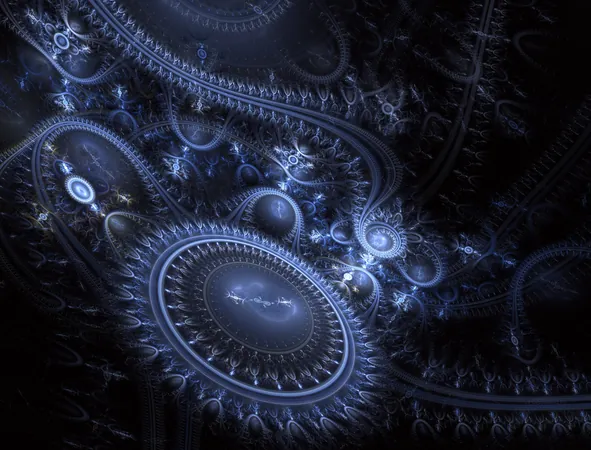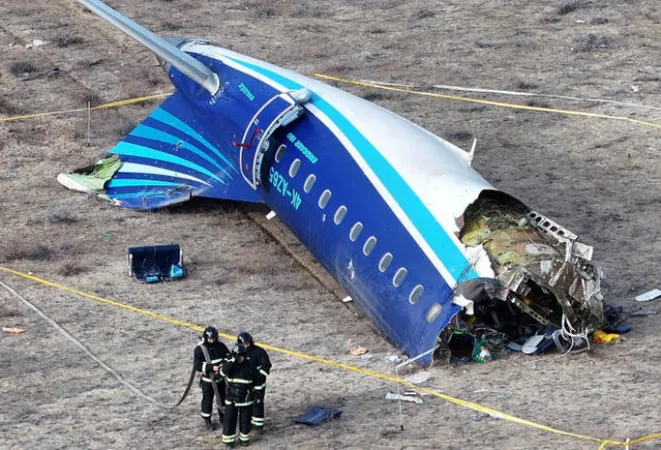
Is Time Travel Finally Possible? Experts Weigh In!
2024-12-28
Author: Siti
Exploring the Possibility of Time Travel Through New Theories
In a fascinating discussion on the controversial topic of time travel, Caroline Delbert from Popular Mechanics revisits a groundbreaking theory that suggests the phenomenon could actually be feasible—at least, in a way that sidesteps the classic paradoxes we've come to know from films like "Back to the Future" and "Terminator."
The age-old problem lies in the idea that a time traveler could potentially erase their own existence by altering past events, such as going back to eliminate their grandmother, thereby creating an insurmountable paradox: If the traveler wasn’t born, how could they have traveled back in time at all? But researchers from the University of Queensland—Germain Tobar and Fabio Costa—are shaking up this notion with their innovative approach to 'closed time-like curves' (CTCs) of time travel.
Key Insights from Tobar and Costa's Research
According to Tobar and Costa’s 2020 paper published in *Classical and Quantum Gravity*, their theoretical framework indicates that as long as two key events within a time travel scenario are maintained in “causal order,” the intervening events are open to local free will, allowing for intriguing dynamics without creating contradictions.
Their research supports the idea that complex scenarios can unfold within time loops while still complying with the principle of free choice in local actions. The physicists propose a hypothetical situation: imagine a time traveler ventures back to prevent the outbreak of a deadly disease. If, hypothetically, the time-traveling intervention proves successful, one might think that the past would change, and the traveler wouldn't exist to enact the change. However, Tobar suggests that the disease might still find a way to spread through alternate routes or methods, effectively sidestepping the paradox entirely.
Implications of a Multiverse Model
This theory opens doors to a whole new realm of possibilities. Rather than a single outcome dictated by a time traveler's intervention, the timeline could embrace multiple realities, akin to "multiverse theory," where every choice spawns a different branch of the timeline.
David Nield at ScienceAlert summarizes this intriguing concept: if time travel were possible, it would not be as simple as rewriting history; instead, there could exist a parallel continuum where actions don’t necessarily erase the original timeline, but coexist alongside it.
Conclusion: The Future of Time Travel
In essence, these revolutionary ideas from Tobar and Costa challenge our long-held beliefs about time travel and offer a glimpse into a future where such journeys could happen without triggering the dreaded paradoxes that have long haunted the subject.
While we may not be ready to hop in a DeLorean just yet, stay tuned as scientists continue to explore the tantalizing potential of time travel—who knows what breakthroughs await us in the future!



 Brasil (PT)
Brasil (PT)
 Canada (EN)
Canada (EN)
 Chile (ES)
Chile (ES)
 España (ES)
España (ES)
 France (FR)
France (FR)
 Hong Kong (EN)
Hong Kong (EN)
 Italia (IT)
Italia (IT)
 日本 (JA)
日本 (JA)
 Magyarország (HU)
Magyarország (HU)
 Norge (NO)
Norge (NO)
 Polska (PL)
Polska (PL)
 Schweiz (DE)
Schweiz (DE)
 Singapore (EN)
Singapore (EN)
 Sverige (SV)
Sverige (SV)
 Suomi (FI)
Suomi (FI)
 Türkiye (TR)
Türkiye (TR)